By Jan Worth-Nelson
“Here at the University of Michigan – Flint, we dare to dream big. With market analyses, stakeholder engagement, and program economics, we have envisioned a bold, strategic and transformative future that is like nothing this university has ever experienced before here at the University of Michigan – Flint. We will.”
With that determined affirmation, at a town hall Feb. 17 at Riverfront Center, University of Michigan – Flint Provost Sonja Feist-Price introduced presentations by all six of the university’s deans on plans for “Strategic Transformation” of the academic side of the downtown campus.
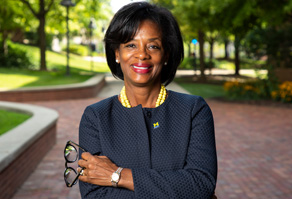
UM-Flint Provost Sonja Feist-Price (Photo source: UM-Flint website)
On a cold, snowy morning when many schools and businesses were closed, about 75 people, mostly UM – Flint faculty and staff, joined the town hall in person. Chancellor Debasish Dutta said an additional 213 were live streaming the event.
Noting that the next phase of the Strategic Transformation will address the student services side of the institution, Dutta exhorted the audience, “The landscape is changing rapidly — higher education, the societal landscape, the needs of the state and businesses and the country — we live in a fast-paced world.
“This strategic transformation process is a unique opportunity,” Dutta said, “A once- in-50-years, maybe, opportunity — for UM-Flint to transform itself for the future, such that we become programmatically competitive, aligned with the needs of the state and the community, and a vibrant institution no matter what the enrollment is.”
The work is happening in response to a campus-wide process kicked off last September by then-UM president Mary Sue Coleman, who asserted UM – Flint’s problems are urgent and require immediate change.
Those problems include a $7.3 million budget deficit, plunging enrollment, a 35 percent six-year graduation rate deemed “unacceptable,” a struggle to fill some humanities courses, and urgent unmet workforce needs in education and nursing.
The process has been shaped around research conducted by the Huron Group, a huge national consulting firm based in Chicago but with global influence that specializes in higher education analyses for universities and colleges — most often, like the UM – Flint, those facing fiscal and institutional challenges.
For the town hall, Dutta said, instead of listing what he said faculty already would have heard from their deans and departments. his team decided to take “a higher level view…we want you to imagine what UM – Flint as an institution could be like after this transformation. In this transformation, you will see the contours of that institution, through the academic lens. Today, try to imagine what this institution looks like academically.”
In a brief “synthesis” of their work, two Huron representatives, Gena Flynn and Nick Bradley, said that in consulting with the university, they had combined community engagement with market analysis and course economics built on “market-informed opportunities, UM – Flint’s unique strengths and synergies, and mission driven imperatives.”
More detail on the Huron approach, along with a YouTube video of the entire town hall are available here.
While fears among some faculty on the campus have centered on predictions of program and faculty cuts, Friday’s town hall was all about what could be added to address the campus’s fiscal woes and stem declining enrollment. If program cuts are under consideration, there was no word of them.
Listening closely, one could almost hear the notoriously hard shell of academia’s silos cracking. Three things stood out.
First, university administrators clearly are calling for turns as quickly and strongly as possible to “alternate modalities,” creating flexible and hybrid accessibility options for their students. Second, almost everyone mentioned partnerships and interdisciplinary approaches — both within the university and outside. And third, as if to acknowledge repeated concerns from many that the humanities and liberal arts are being targeted in talk of cost cutting, almost everyone acknowledged the contributions of the liberal arts as stand alone elements of higher education, for the community, and to their disciplines.
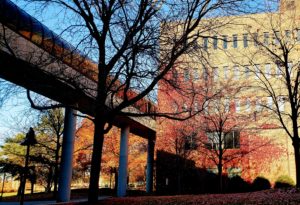
French Hall on the UM-Flint campus in downtown Flint. (Photo by Tom Travis)
Feist-Price said the academic plans produced by the six colleges and schools in the first six months of the campus-wide effort, what she labeled “proposed growth initiatives,” include “37 existing academic programs that have potential to realize enrollment growth and 54 new programs suggested to be considered, launched, or tailored to new audiences.”
She said those programs would be “candidates for prioritization for investment,” and that is how each dean concluded his or her pitch.
The College of Arts and Sciences (CAS), which has been the UM – Flint’s largest, led the others in both existing programs targeted for growth (6) and new programs considered (20). The others, respectively, are College of Health Sciences, 8 and 10; ,School of Nursing, 5 and 9; School of Education and Human Services, 3 and 5; College of innovation and Technology (CIT), 4 and 6.
College of Innovation and Technology (CIT)
Dean Chris Pearson of the UM – Flint’s newest college, opened 18 months ago, said the newness of the CIT is one of its advantages, allowing it to “focus on the future” and be nimble in aligning its “polytechnic” approach to the market and offering career opportunities, as he explained, in cyber security, chip manufacturing, automation technology, workforce development through experiential learning, authentic industry partnerships. battery manufacturing, artificial intelligence.
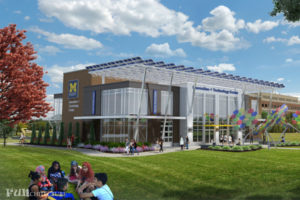
Architectural rendering of the proposed CIT building. (Graphic source UM-Flint)
He predicted the CIT could well attract 1,000 additional students into its six proposed programs. He also noted liberal arts elements in these programs such as attention to emotional intelligence, would necessarily be included.
School of Management (SOM)
Dean Yener Kandoğan reviewed how “we cannot turn our backs” on students who need online course delivery or those who prefer different modalities. He said the SOM is pursuing hybrid options so that students can choose the modality that fits their learning styles and preferences. He noted that within the growing market of adult learners, most are in need of flexible programs and an accelerated format. He said in light of the age-old question of whether a general or specialized degree program is better, student demand is trending toward the specialized models.
Nonetheless, he said the SOM is designing programs emphasizing intersections between technology and business, health and business. and offering stackable credentials. Finally, he said SOM recognizes workforce demands for soft skills such as communication and presentation skills and general management skills, and that those needs are being addressed both through embedding them within existing programs or offering certificate options.
College of Arts and Sciences (CAS)
The longest list of specifics came from Interim CAS Dean Douglas Knerr, who asserted, “Politics, science, culture, and society are thoroughly entangled. The liberal arts and sciences must be as well, threading like fine fabric through the disciplines.
“CAS will be the driver of an ecosystem where the benefits of the liberal arts and sciences proliferate across the institution and into our community,” he predicted.
To accomplish that, he said, his staff and faculty have proposed “more than 100 innovative ideas and proposals, clustering around creating new modalities, concepts and program designs to meet students not just where they are but where they want to be” and to graduate students who are “career ready and with career sustaining skills across their lifetimes.”
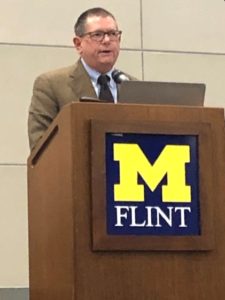
Interim UM-Flint College of Arts and Sciences Dean Douglas Knerr. (Photo by Jan Worth-Nelson)
These would include programs fusing “liberal and professional learning,” in 3D digital design, arts and technology, computational media and design, green chemistry. He said fully online and hybrid programs are under consideration in psychology, economics, philosophy, communication, foreign language and others He said CAS aims to create a “Center for Outreach with Data Science” to provide data analytics and essential data services to the campus and community.
He stated CAS is aiming to create “innovative, interdisciplinary collaborations in economics, political science, music and art therapy with cultural heritage and history and labor studies, and he said the college will “fully engage with the digital humanities, creating a digital scholarship lab to expand the limits of traditional humanities and how it seeks answers to questions about human culture.
Finally, he noted CAS is pursuing a cultural justice and society major along with options for community justice in sociology, anthropology, criminal justice and women’s and gender studies, , a pre-law pathway, graduate options in mental health services.
School of Education and Human Services:
Dean Beth Kubitskey affirmed that SEHS’s vision is to advance social change, equity and social justice — to increase righting inequalities and expanding the diversity of the student population.
She stated community partnerships are the linchpin both to recruit students and create strategic course offerings — as well as informing course and program designs and courses usable in multiple majors, and multiple modalities.
Noting a huge need for teachers and social workers locally and statewide — and adding that the State of Michigan has dedicated a half billion dollars toward helping recruit and train teachers, she said SEHS is beefing up dual enrollment for high school students, teaching certificates for school employees — both face to face and online. Those partnerships include arrangements with the Flint Community Schools and the Genesee Intermediate School district, including special education teacher programs, revised elementary programs, and new interdisciplinary programs with CIT and SOM.
Both locally and nationally, social work has been identified as a critical need, she said, adding that the SEHS is designing an MSW program and looking at concentrations and modalities to match student needs..
School of Nursing (SON)
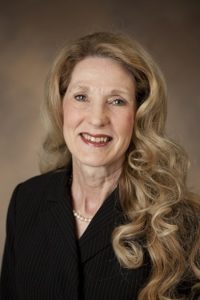
UM-Flint School of Nursing Dean Cynthia Mccurren. (Photo source UM-Flint)
Dean Cynthia McCurren said a nursing workforce shortage crisis has been worsened by the pandemic and complicated by accelerated retirements of Baby Boomer nurses and increasing demands for nursing care by the nation’s aging population. Nursing programs are in high demand, she said, but the market is extremely competitive.
“We must distinguish ourselves,” she said. “It’s not just about numbers, it’s about who we are: creating a culture. Our vision is to create a culture in which every student can say, you believed in me.” She said the SON is seeking aspiration solutions — to improve equity and address systemic inequities in nursing education
She described a new holistic admissions model including a mentor program and pipelines to promote diversity, The SOM’s admission emphasis shifts from determining how successful a candidate will be as a student, to looking at the contribution that applicant can make to the profession, she stated.
She called for intensive relationships with practice partners, reflecting the continuum of care and reciprocity. a cultural shift in health care delivery.
She said nursing education has always started with a foundation in the liberal arts — and will continue to ensure student learning and clinical experiences dovetail with the realities of what they encounter in the workforce.
She added the SON is pursuing innovative modalities to create a balance of inperson and remote delivery. with cognates and certificates built into the nursing degree programs or stand alone and allowing for specialization. The school plans to add certifications in rural health, school nursing, among others.
College of Health Sciences (CHS)
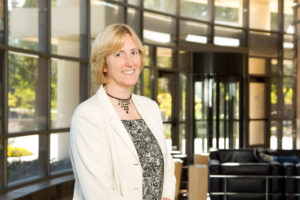
UM-Flint Dean of College of Health Sciences Donna Fry. (Photo source UM-Flint)
Dean Donna Fry noted that the CHS offers programs in public health, health care administration, radiation therapy, respiratory therapy, a health science pre-professional degree in public health, health care management, and a physicians assistant program,
It also offers doctoral programs in physical therapy, nurse anesthesia and occupational therapy.
She said the critical need for nursing services described by Dean McCurren expands across the whole spectrum of the health professions. She said UM – Flint distinguishes itself as the regional comprehensive university created in this town to bring the quality Michigan degree to the residents of this region.
With that in mind, the college is designing “career laddering” to facilitate potential students’ entry into UM – Flint’s health professions. Those “ladders” include partnerships with the Genesee Career Institute and Mott Community College, for example, through which students transfer in with an associate degree and complete a health care degree, The CHS also is launching new programs in occupational and physical therapy graduate programs through which they apply in their junior year and can complete the full set of degrees in 6 years instead of 7.
Fry also touted an emerging partnership with the Greater Flint Health Coalition to help connect students with health care work experience and opening up job possibilities as they’re completing their health care degrees.
CHS is proposing new specialized programs at the intersection of health care and technology, and health care and business, Fry said.
In summarizing the presentations, Feist-Price continued, “We will become the destination of choice for today’s students by offering degree programs that are in demand by business and industry. We will.”
“We will answer the call for a highly skilled workforce in health related disciplines, polytechnic fields, business and industry, teacher education and so much more. We will.
“We will graduate students who are critical thinkers as a result of interdisciplinary dynamic programs using experiential learning flexible delivery and stackable credentials
“We will help to transform the Flint community with the support of our faculty, our students, and out staff, and in doing so,
“We will positively impact families, communities, and ultimately the State of Michigan,” she promised, “We will.”
EVM Consulting Editor Jan Worth-Nelson can be reached at janworth1118@gmail.com.

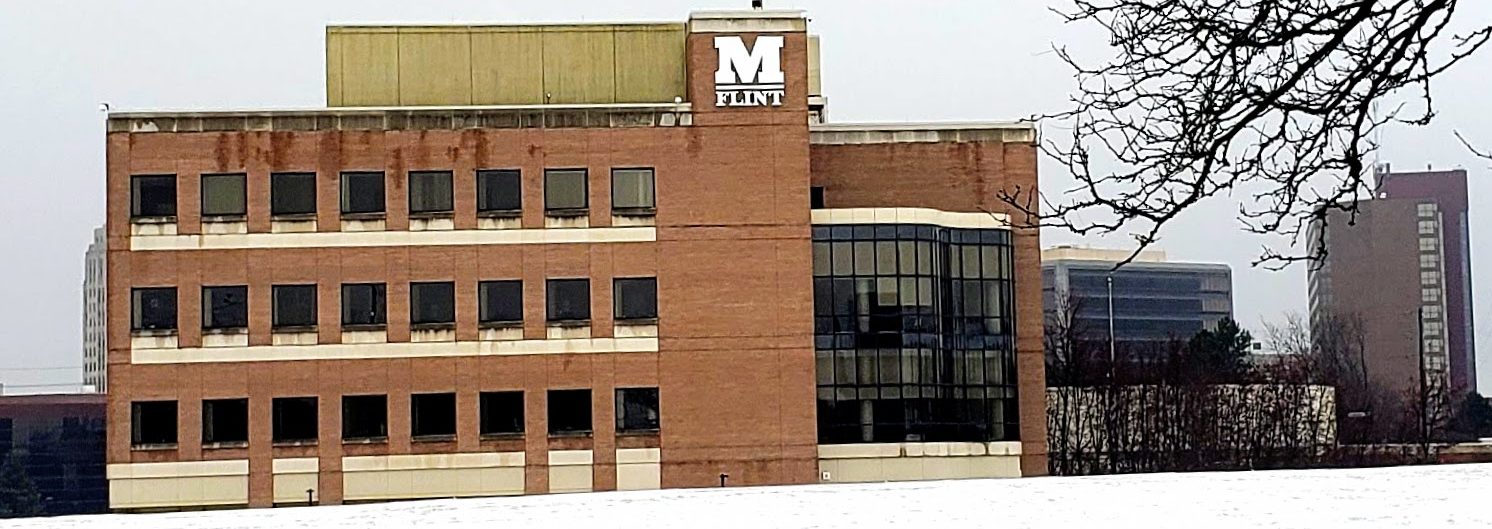
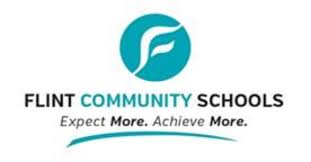



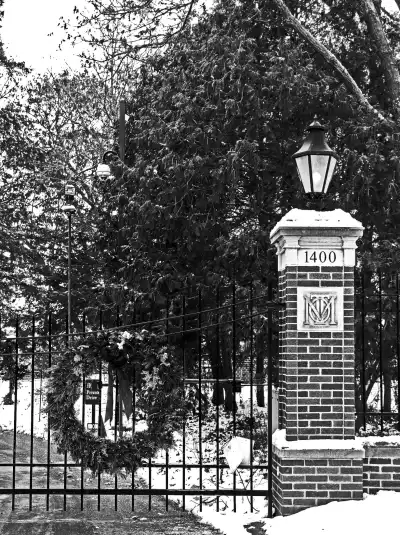

You must be logged in to post a comment.